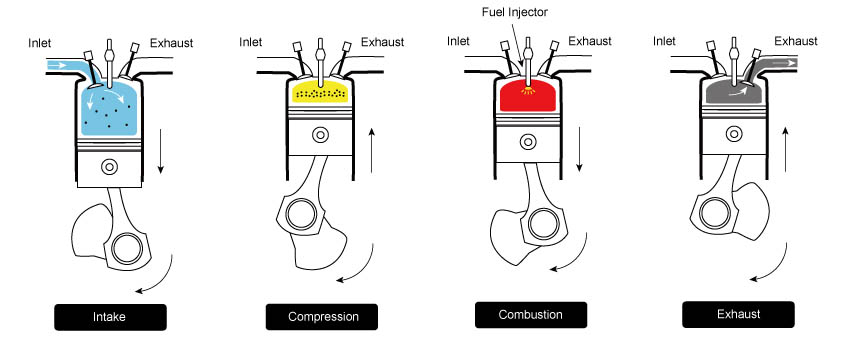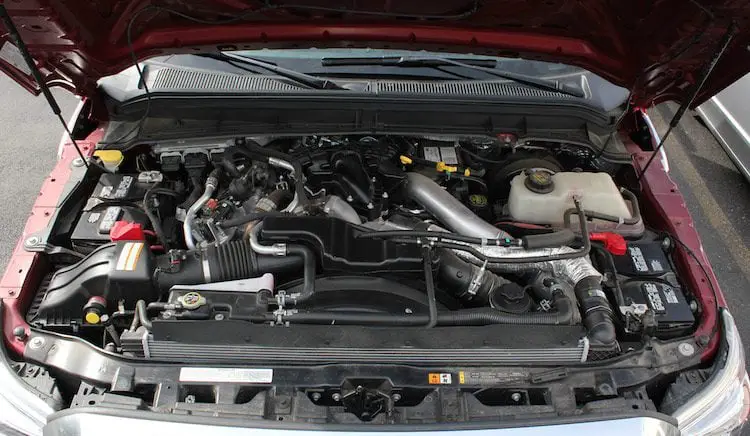No, diesel engines do not have spark plugs. Instead of using a spark for ignition, diesel engines rely on compression ignition, where air is compressed to a high temperature, causing the fuel to ignite automatically when injected. For cold starts, diesel engines use glow plugs to preheat the combustion chamber, ensuring proper ignition.
Diesel engines are known for their power, durability, and efficiency, making them a popular choice in trucks, heavy machinery, and certain passenger vehicles. However, one common question among car enthusiasts and DIY mechanics is whether diesel engines have spark plugs. To fully understand the mechanics of diesel engines, it’s essential to explore their design, how they ignite fuel, and the role of spark plugs (or lack thereof) in their operation.
Contents
How Diesel Engines Work
Unlike gasoline engines, which rely on spark plugs to ignite the air-fuel mixture, diesel engines use a process called compression ignition. This is where the distinction between the two engine types begins.
In a gasoline engine, a mixture of air and fuel is introduced into the combustion chamber, and the spark plug ignites this mixture to create the explosion that powers the engine. However, diesel engines work a bit differently:
- Air is drawn into the combustion chamber and compressed to very high pressures, which raises its temperature significantly.
- Once the air is hot enough (typically above 500°C or 932°F), diesel fuel is injected into the combustion chamber at just the right moment.
- The heat of the compressed air ignites the diesel fuel without the need for a spark. This process is called auto-ignition or compression ignition.

The Role of Compression in Diesel Engines
The key difference between diesel and gasoline engines lies in the compression ratio. Diesel engines have much higher compression ratios than gasoline engines—often as high as 20:1 or more, compared to around 10:1 in gasoline engines. This high compression heats the air to a point where the injected fuel ignites spontaneously. This is why diesel engines don’t require spark plugs; the air-fuel mixture ignites on its own due to the immense heat generated by compression.
What Are Spark Plugs?
Spark plugs are devices in gasoline engines responsible for igniting the air-fuel mixture through an electric spark. They are connected to an ignition system that generates high-voltage pulses, which jump the gap between the electrodes of the spark plug, creating a spark. This spark causes the mixture to explode and drive the engine’s pistons.
Components of a Spark Plug
Here are the main components of a spark plug and their functions:
- Center Electrode: Conducts high voltage from the ignition coil.
- Ground Electrode: Forms a gap with the center electrode, across which the spark jumps.
- Insulator: Keeps the center electrode isolated from the outer shell.
- Threaded Shell: Screws into the engine cylinder head and helps dissipate heat.
Spark plugs are essential for gasoline engines but not needed in diesel engines due to the difference in combustion processes.
Do Diesel Engines Have Spark Plugs?
While diesel engines do not have spark plugs, they have another component that plays a somewhat similar role in helping cold engines start: glow plugs.
What Are Glow Plugs?
Glow plugs are found in diesel engines and are used to preheat the combustion chamber, especially in cold weather conditions. Diesel fuel requires higher temperatures to ignite than gasoline, and in cold environments, the engine block and air inside the cylinders may be too cold to ignite the fuel properly through compression alone. Glow plugs solve this problem by warming up the air in the combustion chamber to ensure proper ignition.
How Do Glow Plugs Work?
- When you turn on the ignition in a diesel engine, glow plugs receive electrical power and heat up.
- The plugs stay on for a few seconds (sometimes indicated by a dashboard light), warming the air inside the combustion chamber.
- Once the engine reaches a sufficient temperature, the glow plugs turn off, and the diesel engine operates under normal compression ignition.
While glow plugs do not ignite the fuel directly like spark plugs, they assist in the ignition process when the engine is cold, particularly during start-up. In warmer conditions, diesel engines often don’t require glow plugs at all.

Why Diesel Engines Don’t Have Spark Plugs
The absence of spark plugs in diesel engines is due to the fundamental difference in how they ignite fuel. As mentioned earlier, diesel engines rely on compression ignition rather than spark ignition. The high-pressure compression heats the air inside the cylinder to the point where it spontaneously ignites the fuel. Since no external spark is required, spark plugs are unnecessary.
Additionally, diesel fuel is less volatile than gasoline, which makes it unsuitable for spark ignition. The high-energy compression method used in diesel engines is far more efficient for igniting diesel fuel than a spark could ever be.
Advantages of Compression Ignition Over Spark Ignition
The use of compression ignition in diesel engines offers several advantages:
- Fuel Efficiency: Diesel engines are generally more fuel-efficient than gasoline engines, particularly in highway driving conditions. This is because the higher compression ratio allows the engine to extract more energy from the same amount of fuel.
- Durability: Diesel engines are designed to withstand high pressures, making them more durable and longer-lasting than their gasoline counterparts.
- Torque: Diesel engines produce more torque, making them ideal for heavy-duty vehicles like trucks and buses.
- Lower Emissions (for CO2): Although diesel engines produce more NOx and particulates, they emit lower levels of carbon dioxide (CO2) than gasoline engines, which is beneficial for reducing greenhouse gas emissions.
Frequently Asked Questions
Here are some FAQs about diesel engines and spark plugs –
1. Can you use spark plugs in a diesel engine?
No, diesel engines are not designed to use spark plugs. They operate on compression ignition, which does not require a spark to ignite the fuel-air mixture.
2. What is the purpose of glow plugs in a diesel engine?
Glow plugs preheat the air in the combustion chamber to assist in starting the engine, especially in cold conditions. They are not responsible for igniting the fuel during normal engine operation.
3. Do modern diesel engines still use glow plugs?
Yes, most modern diesel engines still use glow plugs, though advancements in engine design and materials have reduced the reliance on them for starting the engine in moderate temperatures.
4. How do diesel engines ignite fuel without spark plugs?
Diesel engines use compression ignition, where air is compressed to such a high temperature that when diesel fuel is injected, it ignites spontaneously due to the heat.
5. Are diesel engines more reliable than gasoline engines?
Diesel engines tend to be more durable and reliable in the long run due to their robust construction, high torque output, and fuel efficiency, though they may require more expensive maintenance.
Conclusion
Diesel engines do not have spark plugs because they operate using a completely different principle of combustion-compression ignition. Instead of relying on a spark to ignite the fuel-air mixture, diesel engines compress air to extremely high pressures, generating enough heat for spontaneous fuel ignition. While diesel engines don’t need spark plugs, they do have glow plugs, which help start the engine in cold weather by preheating the air in the combustion chamber.
Understanding the distinctions between diesel and gasoline engines not only deepens your appreciation of automotive technology but also equips you with the knowledge to maintain and troubleshoot your vehicle more effectively. Whether you’re driving a diesel truck, SUV, or car, knowing how your engine works will help you get the most out of it in terms of performance and longevity.